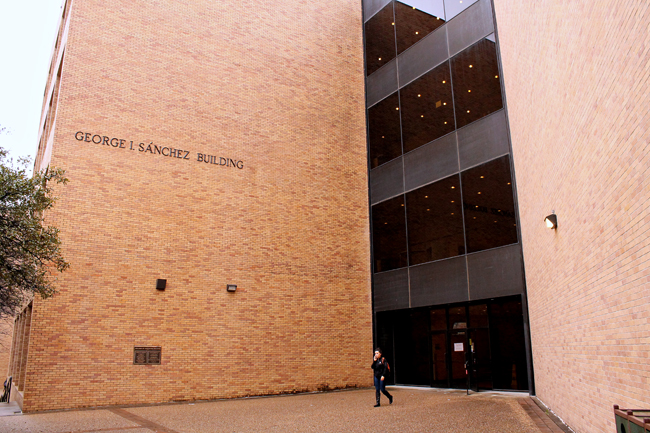The College of Education is ranked among the top 10 graduate schools of education in the nation for 2016 because of its increased focus on research, according to a University official.
U.S. News and World Report released the schools ranked within the top 10 graduate schools last week, but they plan to post exact ranking on the website Tuesday.
UT is one of only three public institutions among the schools listed on the U.S. News ranking. Last year, the University’s College of Education ranked 10th overall and fourth among public schools. This year, it is expected the University will rank tenth overall again and move up to third place among public schools, according to senior associate dean Marilyn Kameen.
Research is highly prioritized by both the college and U.S. News and World Report officials, according to Natasha Beretvas, associate dean for research and graduate studies.
“The more money we are spending on research, the higher the ranking,” Beretvas said. “The total research expenditures makes up 15 percent [of the ranking], but then the research expenditures per faculty member are also 15 percent, so it’s, like, double-dipped.”
The College of Education’s research expenditures have increased almost $10 million from last year, according to Kameen.
“We’re number two in the country in research expenditures for the college,” Kameen said.
Over the past year, the college has focused its research on a variety of areas, including educational psychology, teacher retention rates and racial identity in the classroom.
For Patrick Vincent, educational psychology graduate student, the education college’s research influenced his decision to attend UT for graduate school. Many other schools lack research opportunities, which makes UT’s College of Education stand apart, according to Vincent.
“Some of the programs that I interviewed at … didn’t seem like they were at the front of all the research and understanding where the field was headed,” Vincent said. “It’s more about just creating people to go out into the workforce. Research is actually being conducted [extensively] in this department.”
The main difference in ranking between public and private institutions is based on the availability of funding, Kameen said. Private schools are wealthier because of endowments, whereas public schools such as UT rely on grants and state funds, she said.
“It’s important to emphasize the distinction between a ranking among all public and private [universities] and then what our ranking is among public universities since they’re so different,” Kameen said. “We really compare ourselves to the public universities because that’s our peer group.”


















